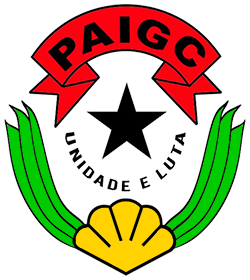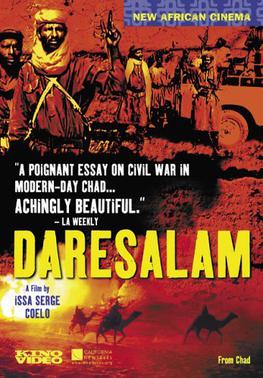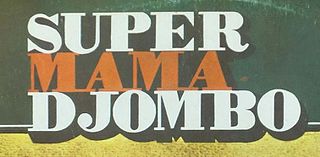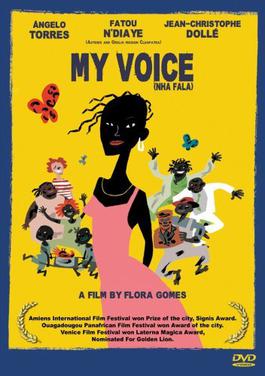
Guinea-Bissau, officially the Republic of Guinea-Bissau, is a country in West Africa that covers 36,125 square kilometres (13,948 sq mi) with an estimated population of 2,026,778. It borders Senegal to its north and Guinea to its southeast.

The recorded history of Cape Verde begins with the Portuguese discovery of the island in 1458. Possible early references to Cape Verde date back at least 2,000 years.

The African Party for the Independence of Guinea and Cape Verde is a political party in Guinea-Bissau. Originally formed to peacefully campaign for independence from Portugal, the party turned to armed conflict in the 1960s and was one of the belligerents in the Guinea-Bissau War of Independence. Towards the end of the war, the party established a socialist one-party state, which remained intact until multi-party democracy was introduced in the early 1990s. Although the party won the first multi-party elections in 1994, it was removed from power in the 1999–2000 elections. However, it returned to office after winning parliamentary elections in 2004 and presidential elections in 2005, since which it has remained the largest party in the National People's Assembly.

The Guinea-Bissau War of Independence, or the Bissau-Guinean War of Independence, was an armed independence conflict that took place in Portuguese Guinea from 1963 to 1974. It was fought between Portugal and the African Party for the Independence of Guinea and Cape Verde, an armed independence movement backed by Cuba, the Soviet Union, and Yugoslavia. The war is commonly referred to as "Portugal's Vietnam" because it was a protracted guerrilla war which had extremely high costs in men and materiel and which created significant internal political turmoil in Portugal.
Articles related to Guinea-Bissau include:
Carmen Maria de Araújo Pereira was a Bissau-Guinean politician. She served three days as Acting President in 1984, becoming the first woman in this role in Africa and the only one in Guinea-Bissau's history. She had the shortest term as the Acting President, serving only three days in office. She died in Bissau on 4 June 2016.

In Vanda's Room is a docufiction film by Portuguese director Pedro Costa. This is the second film in his Fontainhas trilogy.

Daresalam is a 2000 dramatic film by Chadian director Issa Serge Coelo. It has been considered one of the very few recent African films that has treated the theme of the internecine conflicts that have ravaged the African continent since independence. While set in a fictional African country called Daresalam, it reflects the civil war that ravaged Chad during the 1960s and 1970s.

Docufiction is the cinematographic combination of documentary and fiction, this term often meaning narrative film. It is a film genre which attempts to capture reality such as it is and which simultaneously introduces unreal elements or fictional situations in narrative in order to strengthen the representation of reality using some kind of artistic expression.
Ethnofiction refers to a subfield of ethnography which produces works that introduce art, in the form of storytelling, "thick descriptions and conversational narratives", and even first-person autobiographical accounts, into peer-reviewed academic works.
Flora Gomes is a Bissau-Guinean film director. He was born in Cadique, Guinea-Bissau on 31 December 1949 and after high school in Cuba, he decided to study film at the Instituto Cubano del Arte y la Industria Cinematográficos in Havana.
The Two Faces of War is a 2007 Portuguese documentary film directed by Diana Andringa and Flora Gomes. The film was shot in Guinea-Bissau, Cape Verde and Portugal. The film includes a series of interviews and testimonies of people who lived through the period of the anti-colonial war and liberation in Guinea-Bissau.

Super Mama Djombo is a band from Guinea Bissau who sing in Guinea-Bissau Creole. The band was formed in the mid-1960s, at a Boy Scout camp, when the members were only children. Mama Djombo is the name of a spirit that many fighters appealed to for protection during Guinea-Bissau's War of Independence.

The 45th annual Venice International Film Festival was held from 29 August to 9 September 1988.

Nha Fala, English title: My Voice is a 2002 internationally co-produced musical film directed by Bissau Guinean director Flora Gomes. The movie stars Fatou N'Diaye, Ángelo Torres, Jean-Christophe Dollé and Bia Gomes.
Sana Na N’Hada is a filmmaker from Guinea Bissau, "the first filmmaker from Guinea-Bissau".

Udju Azul di Yonta / The Blue Eyes of Yonta is a 1991 Portuguese film, the second film by the Bissau-Guinean director Flora Gomes. The government of Guinea-Bissau helped in production, together with the Institute of Cinema in Portugal, Vermedia Productions, and Portuguese television.
Xime is a 1994 Bissau-Guinean drama film directed by Sana Na N'Hada.
Teodora Inácia Gomes is a politician, feminist and women's rights activist, who is a former fighter in the struggle for Independence of Guinea-Bissau from Portuguese rule, and is Deputy Leader of African Party for the Independence of Guinea and Cape Verde (PAIGC).











